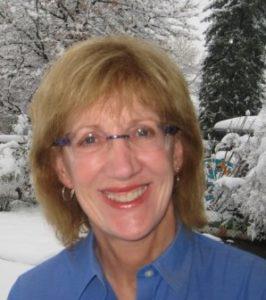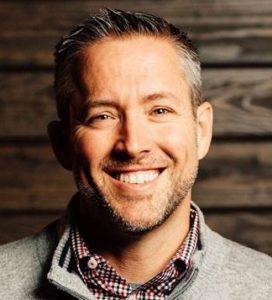|
Newspaper story on sexual abuse in SBC was a long time coming for activist Christa Brown
By Bob Allen
Christa Brown contacted 18 influential Baptist leaders in four states between July 2004 and May 2005, warning there might be a sexual predator among their ranks. Not one offered to help. Today she has their attention. The Colorado woman and sexual abuse survivor is among sources quoted in a 6,000-word investigative story by two Texas newspapers reporting decades of sexual abuse by hundreds of church leaders and volunteers in the Southern Baptist Convention. Sunday’s story, the first of a three-part expose by the Houston Chronicle and the San Antonio Express-News, says about 380 Southern Baptist pastors, Sunday school teachers, deacons and church volunteers have faced allegations of sexual misconduct since 1998. More than 200 have been convicted or confessed as part of a plea bargain, and nearly 100 are currently in prisons across the United States. The papers found more than 700 victims in the past 20 years. Some, like Brown, have been asking the nation’s largest Protestant body to consider prevention policies similar to those adopted by other faith groups, such as the Roman Catholic Church, for more than a decade. “My heart grieves for the 700 documented victims in this report even as it splits wide open with the certain knowledge that these 700 are just the tip of the iceberg,” Brown said Feb. 11. “There are so many more whose stories remain hidden, who were bullied into silence in the past and who may never come out from that shroud of shame again.” In her 2009 book, This Little Light: Beyond a Baptist Preacher Predator and His Gang, Brown tells how she broke down in tears during a piano lesson due to guilt from having had “an affair” with her youth minister. She was forced to apologize to the man’s wife and told never to speak of it again. He soon moved to another church, complete with the type of send-off celebration befitting a man of God. When Brown’s daughter turned 16 – the age she had been when her own abuse began – she saw herself at that age. Imagining how she would feel if her child were victimized by an authority figure in a position of trust, she assumed Southern Baptist leaders would want to know if her abuser still had access to children. Despite getting the runaround from the 18 Southern Baptist leaders, Brown eventually tracked down her former youth minister with help of an Orlando Sentinel story about a lawsuit she had filed, working at a church in Florida. The bad publicity brought an end to his ministry, which over the years included a stint at First Baptist Church in Atlanta serving under Charles Stanley, at the time president of the Southern Baptist Convention. On Sept. 26, 2006, Brown joined two members of the Survivors Network of those Abused by Priests – a support and advocacy group started during the Catholic clergy abuse scandal – outside Southern Baptist headquarters in Nashville, Tennessee, to bring attention to what they saw as a “systemic” problem that “indirectly shields predators” by allowing them to move from church to church without detection. In April 2007 she was interviewed by ABC News reporter Jim Avila in a story about a six-month investigation describing how easily preacher predators can manipulate the SBC’s free-wheeling system of local church autonomy for the news program “20/20.” Frank Page, at the time a pastor serving as SBC president also interviewed for the program, called it “yellow journalism” and a “slice-and-dice” piece to make it appear Southern Baptists aren’t doing enough to combat sexual abuse by clergy. In February 2008 Southwestern Baptist Theological Seminary President Paige Patterson denounced SNAP officials as “evil doers” who are “just as reprehensible as sex criminals” after the group’s leaders asked his board of trustees to investigate his handling of old abuse allegations against a one-time protégé who eventually went to prison. Page resigned last year as president and CEO of the SBC Executive Committee admitting to moral failure. Patterson was fired last summer over his handling of rape allegations. Those and other developments combined for a #MeToo type pushback from Southern Baptist women prompting current SBC President J.D. Greear to establish a Sexual Abuse Presidential Study Group to address the problem. Greear, pastor of The Summit Church in Raleigh-Durham, North Carolina, reacted to the Houston Chronicle and San Antonio Express-News story with a series of tweets pledging to “pursue every possible avenue to bring the vast spiritual, financial and organizational resources of the Southern Baptist Convention to bear on stopping predators in our midst.” “We – leaders in the SBC – should have listened to warnings of those who tried to call attention to this,” Greear said. “I am committed to doing everything possible to ensure we never make that mistake again.” Russell Moore, head of the SBC Ethics and Religious Liberty Commission, said churches must get over the tendency to treat such scandals “as public relations problems to be managed.” “No church should be frustrated by the Houston Chronicle’s reporting, but should thank God for it,” Moore said in an article. “The Judgment Seat of Christ will be far less reticent than a newspaper series to uncover what should never have been hidden.” Albert Mohler, president of Southern Baptist Theological Seminary, lamented “the willful ignorance on the part of many leaders who simply will not see this abuse when it is right before their eyes.” “A story like this must lead Southern Baptists and all Christians and all churches and denominations to make very clear that our churches, our denominational structures have to be safe places for victims to make their abuse known and to know that they will be protected,” Mohler said in a podcast. Bart Barber, a Southwestern Seminary trustee, said he is willing to make a motion at this summer’s SBC annual meeting to withdraw fellowship from churches that harbor sex offenders similar to the way Southern Baptists have in the past removed churches for condoning homosexuality or calling a woman as pastor. Brown said she has little patience for SBC leaders reacting to the Chronicle story like it is a big surprise. “They have known about this,” she said. “They have known for years. Multiple SBC presidents have known. Multiple SBC Executive Committee presidents have known. Multiple other SBC officials have known.” “For years, they have held to a devil’s bargain of choosing institutional protection over the protection of children,” Brown said. “So now, in the face of renewed media pressure, whatever nice-sounding words they may say, whatever so-called commitments they may profess, it is all as clanging cymbals. Only action will hold any meaning.” Brown said she doesn’t place much hope for change in SBC officials, “but I do place hope in the now-exploding power of survivors’ voices.” Brown said many children “could have been spared the soul-searing devastation of clergy sex abuse” if SBC leaders had taken action to create a system for collecting and sharing information about credible abuse allegations when she and others first suggested it in 2006. “Yet even now, 13 years later, I expect they will still find excuses and I wonder what it will take for the pain of these stories to finally reach their hearts,” Brown said. “To the thousands of people who have some knowledge of abusive pastors– clergy colleagues, deacons, survivors, and family members — now is the time. Report what you know to the police, and you can also report, confidentially if you like, to journalists at the Houston Chronicle who are continuing their investigation.” Robert Downen, one of the reporters in two newsrooms who spent more than six months reviewing thousands of pages of court, prison and police records and conducting hundreds of interviews for the story, said Part 2 will look at those who were able to find jobs at churches despite convictions or pending charges and is scheduled for Tuesday. Part 3 on Wednesday looks at abuse by youth pastors.
|
.
Any original material on these pages is copyright © BishopAccountability.org 2004. Reproduce freely with attribution.

